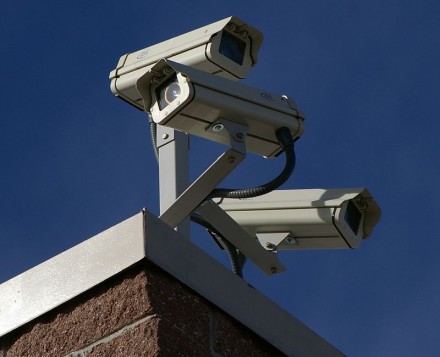“It doesn’t bother me, I’ve got nothing to hide.” Many people take the attitude that mass surveillance doesn’t affect them, that it’s aimed only at the terrorists, the criminals, the murderous radicals – those with something to hide. But the history of government snooping in the UK suggests otherwise.

Trade unionists, students, activists and charities have all been targeted for surveillance – not because they were a threat to the security of the British people, but because they were perceived as a threat to the interests of those in power. The union movement should bear this in mind.
It’s vital for us to consider the way surveillance powers can be, and have been, misused. Following the Hebdo attacks the Tories have called for new powers for the security services to collect and store the personal communications data, including content of messages, of millions of British people. This includes union leaders and members. The data will be gathered regardless of innocence or guilt – everyone will be caught in the net by this new “snooper’s charter”.
Ed Miliband has rightly said Labour will not give the security services any more sweeping surveillance powers on a whim. But why? In my mind, there is too much potential for misuse.
Just look at our history. A standout example is the Thatcher government’s snooping on miners’ leaders. More than 30 years after the miners’ strike of 1984-1985, we are still learning more about the extent of the UK government’s surveillance of the unions. Their phones were bugged, their meetings infiltrated and their movements tracked – sometimes stretching the legal limits. An undercover agent was placed as chief executive in the National Union of Mineworkers (NUM), and tasked with destabilizing and sabotaging the union.
Long before the cross-border snooping revealed by Edward Snowden, the British were using the US National Security Agency (NSA) to bend the rules and spy on their own citizens, deploying NSA listening posts to monitor the miners’ financial transactions in European banks. Guardian journalist Seumas Milne has called the campaign “the single most ambitious ‘counter-subversion’ operation ever mounted in Britain”.
The surveillance of the unions is an issue close to my heart. My family have been miners for generations, and I was on the frontlines of the strike in the 1980s, as the only apprentice in the northeast of the country who joined. I was arrested several times, and experienced police brutality at first hand.
The surveillance of the miners is far being from an isolated case. Prime Minister James Callaghan had miner’s leader Arthur Scargill placed under surveillance from the 1970s, and the official history of MI5 reveals how broadly the security service’s targets extended during the Cold War – from peace activists to trade unionists such as Jack Jones, head of the Transport and General Workers’ Union.
There was even a file on my fellow Labour MP Joan Ruddock when she headed the Campaign for Nuclear Disarmament (CND). Indeed, MI5’s official history suggests that the government overreached, using an overly broad definition of which activities were considered subversive, and therefore within the purview of the security services.
The police have also gone too far with snooping. The revelation that police placed a spy to report on the family of murdered teenager Stephen Lawrence is a particularly troubling example of how surveillance powers can be abused. There are also the cases of undercover officers forming sexual relationships with activists in the 1980s and 1990s, and a more recent case where police attempted to hire informants to spy on student activists at Cambridge University.
It is of course vital that the police and security services have the ability to carry out surveillance where there is evidence that a person poses a security threat.
But without strict limits, there is a risk that the security services, or the politicians above them, could abuse this power. Only effective, robust oversight by the courts and by parliament can ensure that monitoring of genuine security threats doesn’t creep into monitoring of the authorities simply don’t like – human rights organisations, campaigners, and critics.
Many of those targeted for surveillance have nothing to hide, but this does not mean they should be watched. Trade unionists, activists and students who are committed to peaceful, lawful methods for bringing about change should not have their communications intercepted.
The current Conservative assault on labour rights, coupled with their proposal for a new “snooper’s charter”, is a reminder that the dark days of the 1980s are not far away. Unless the union movement wants its internal communications intercepted, its strategies undermined, its leaders smeared, and the interests of its members attacked, it ought to take notice.
Ian Lavery is MP for Wansbeck and Chair of the Trade Union Group of MPs




More from LabourList
‘Organise 2026 – We want to lead a Young Labour that listens – that provides for members in every town, village and city’
Jury trial reforms: Full list of Labour MPs calling for plans to be scrapped
‘The OBR and fiscal rules are fuelling the uncertainty they were supposed to end’